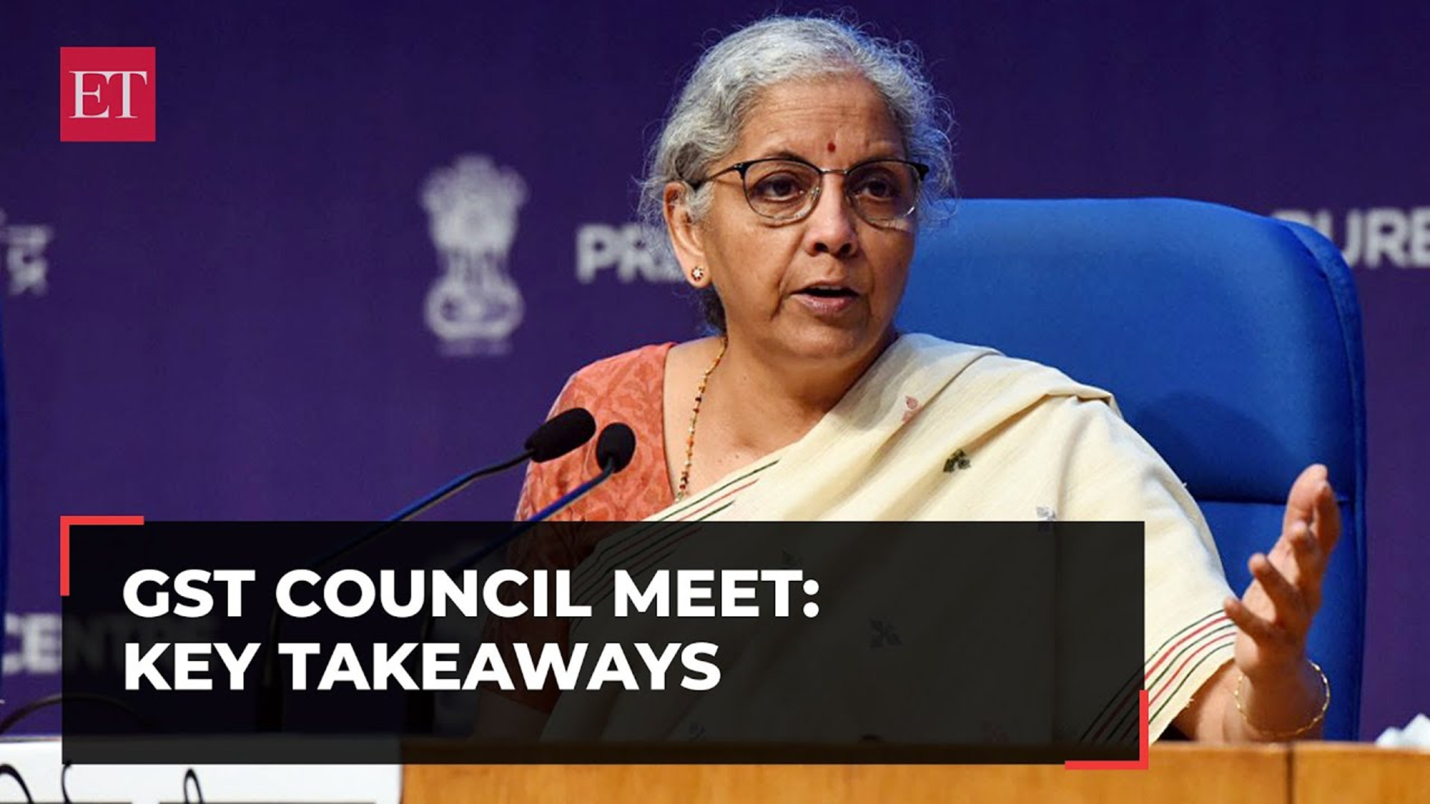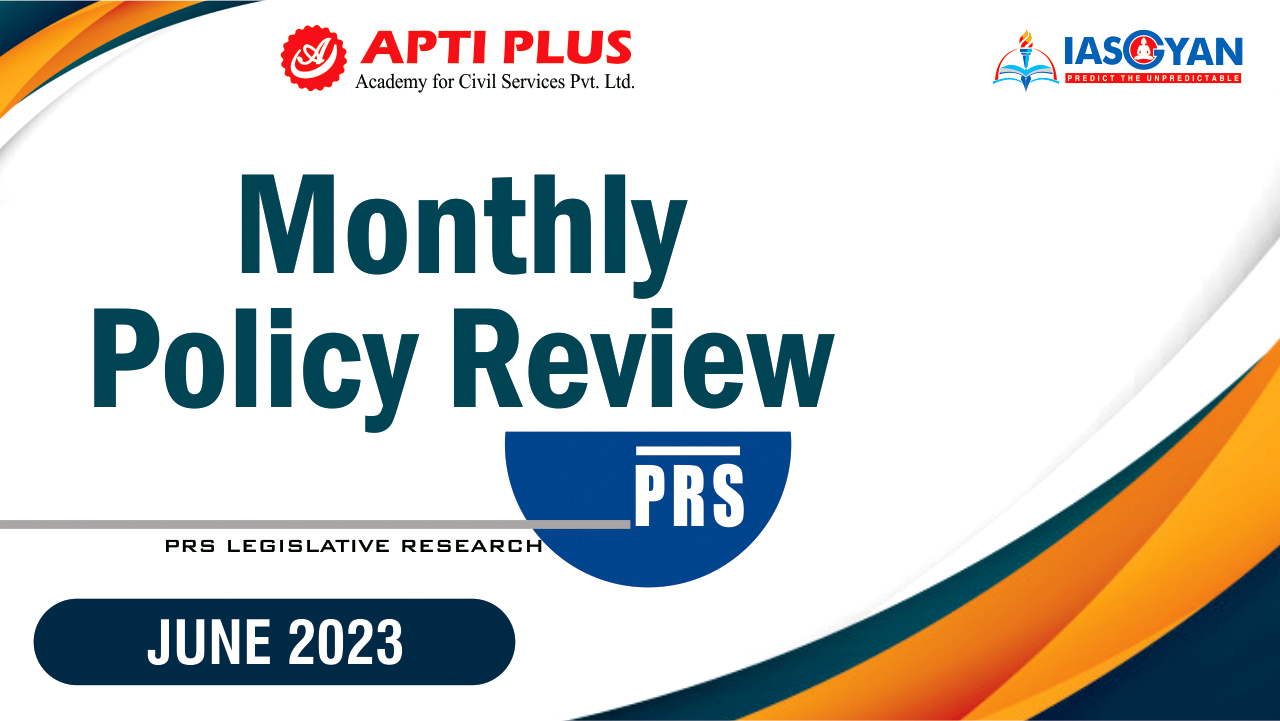Description

Copyright infringement not intended
Context: The Union Finance & Corporate Affairs Minister chaired the 50th meeting of the Goods and Services Tax (GST) Council in New Delhi. The meeting discussed various issues related to GST tax rates, trade facilitation and compliance simplification. The GST Council made several recommendations.
Details
Recommendations regarding the GST rates on various goods:
Uncooked/unfried snack pellets
- Uncooked/unfried snack pellets, which are also known as papad khar, sago fritters, etc., will have a lower GST rate of 5% instead of 18%.
- This will benefit the manufacturers and consumers of these products.
- The GST on these products for the previous period will be paid as per the existing rules.
Dinutuximab (Quarziba) medicine
- Dinutuximab (Quarziba) medicine, which is used for treating a rare form of cancer in children, will be exempted from IGST when imported for personal use.
- This will provide relief to the patients and their families who need this medicine.
Medicines and Food for Special Medical Purposes (FSMP)
- Medicines and Food for Special Medical Purposes (FSMP) that are used for treating rare diseases listed under the National Policy for Rare Diseases, 2021 will also be exempted from IGST when imported for personal use, subject to existing conditions.
- FSMP will also be exempted from IGST when imported by Centres of Excellence for Rare Diseases or any person or institution on the recommendation of any of the listed Centres of Excellence.
- This will facilitate the availability and affordability of these products for patients suffering from rare diseases.
Raw Cotton
- Raw cotton, including kala cotton, supplied by agriculturists to cooperatives will be taxable under the reverse charge mechanism. This means that the cooperatives will have to pay GST on behalf of the agriculturists.
- This will ensure uniformity and compliance in the taxation of raw cotton.
- The GST on raw cotton supplied by agriculturists to cooperatives for the previous period will be regularised as per the existing rules.
Yarn
- Imitation zari thread or yarn, which is used for making embroidery and decorative items, will have a reduced GST rate of 5% instead of 12%.
- This will benefit the small and medium enterprises engaged in this sector.
- The GST on imitation zari thread or yarn for the previous period will be regularised as per the existing rules.
Utility Vehicles
- All utility vehicles that have a length exceeding 4000 mm, engine capacity exceeding 1500 cc and ground clearance of 170 mm & above will be covered under entry 52B in compensation cess notification. This means that they will attract a compensation cess of 22% in addition to the GST of 28%.
- Ground clearance refers to the distance between the lowest point of the vehicle and the ground when the vehicle is not loaded. This will bring clarity and uniformity to the taxation of utility vehicles.
Linz-Donawitz (LD) slag
- The GST rate on LD slag, a by-product of the steel industry, has been reduced from 18% to 5% to promote its use as a soil conditioner and to reduce environmental pollution.
Fish soluble paste
- The GST rate on fish soluble paste, a product used in the animal feed industry, has been reduced from 18% to 5% and the GST paid on this product during the past period has been regularised on an “as is basis” without any additional liability.

Recommendations relating to GST rates on Services
Satellite launch services
- Satellite launch services supplied by private sector organisations, in addition to those supplied by ISRO, Antrix Corporation Limited and New Space India Limited (NSIL), will be exempt from GST. This is to encourage start-ups and innovation in the space sector.
Goods Transport Agencies
- Goods Transport Agencies (GTAs) will have the option to pay GST under forward charge without filing a declaration every year. Once they opt for this option for a particular financial year, they will continue to pay GST under forward charge for the next and future financial years, unless they file a declaration to revert to reverse charge mechanism (RCM).
- The option can be exercised from 1st January of the preceding financial year till 31st March of the preceding financial year.
Food and beverages in cinema halls
- Supply of food and beverages in cinema halls will be taxable as restaurant service as long as (a) they are supplied by way of or as part of a service and (b) supplied independently of the cinema exhibition service.
- Where the sale of cinema tickets and supply of food and beverages are clubbed together, and such bundled supply satisfies the test of composite supply, the entire supply will attract GST at the rate applicable to the service of an exhibition of cinematograph films.
Group of Ministers (GoM) on Casinos, Race Courses and Online Gaming
- The GoM on Casinos, Race Courses and Online Gaming was formed to examine the tax issues related to these activities. The GoM gave its first report in June 2022 and it was discussed in the 47th GST Council meeting. The GST Council asked the GoM to review all the issues again.
- The GoM gave its second report and it was discussed in the 50th GST Council meeting. The GoM suggested that the GST Council should decide whether to tax these activities at 28% on the full-face value of bets placed or on the GGR, as there was no agreement on this.
The GST Council decided the following:
- Online gaming and horse racing will be added to Schedule III as taxable actionable claims by making changes to the law.
- Casino, Horse Racing and Online gaming will all be taxed at the same rate of 28%.
- The tax will be based on the face value of the chips bought in casinos, on the full value of the bets placed with bookmakers/totalisators in horse racing and on the full value of the bets placed in online gaming.
GST Council has made several recommendations for facilitating trade under the GST regime
GST Appellate Tribunal Rules, 2023
- These rules will regulate the appointment and service conditions of the President and Members of the GST Appellate Tribunal, which will hear appeals against orders passed by the National Anti-profiteering Authority and the Appellate Authority for Advance Ruling. The Council has suggested that these rules should be notified by the Centre from 01.08.2023.
- The Council has decided to establish State Benches of the Tribunal in a phased manner.
Input Services Distributor (ISD) mechanism
- The Council has clarified through a circular that the ISD mechanism is not compulsory for distributing input tax credit of common input services procured from third parties to the distinct persons as per the current provisions of GST law and also resolved issues regarding the taxability of internally generated services provided by one distinct person to another distinct person.
- The Council has also proposed that amendment may be made in GST law to make ISD mechanism mandatory from a future date for distributing input tax credit of such common input services procured from third parties.
State-level coordination Committee
- The GST Council has also recommended forming a State level coordination Committee comprising GST officers from both State and Central GST administrations for knowledge sharing on GST matters and coordinated efforts towards administrative and preventive measures.
Must-Read Articles:
GST Council: https://iasgyan.in/daily-current-affairs/gst-council-35
|
PRACTICE QUESTION
Q. What is the Status of the GST Council?
A) A constitutional body that makes recommendations on GST rates and rules.
B) A statutory body that collects and distributes GST revenue among states.
C) A judicial body that resolves disputes related to GST implementation and compliance.
D) A parliamentary body that approves and amends GST laws and policies.
Answer: A
Explanation: The GST Council is a constitutional body established under Article 279A of the Constitution of India. It consists of the Union Finance Minister as the Chairperson, the Union Minister of State in charge of Revenue or Finance, and the Minister in charge of Finance or Taxation or any other Minister nominated by each State Government as members. The GST Council is empowered to make recommendations to the Union and the States on various aspects of GST, such as rates, exemptions, thresholds, etc.
|

https://pib.gov.in/PressReleasePage.aspx?PRID=1938812
https://t.me/+hJqMV1O0se03Njk9
















